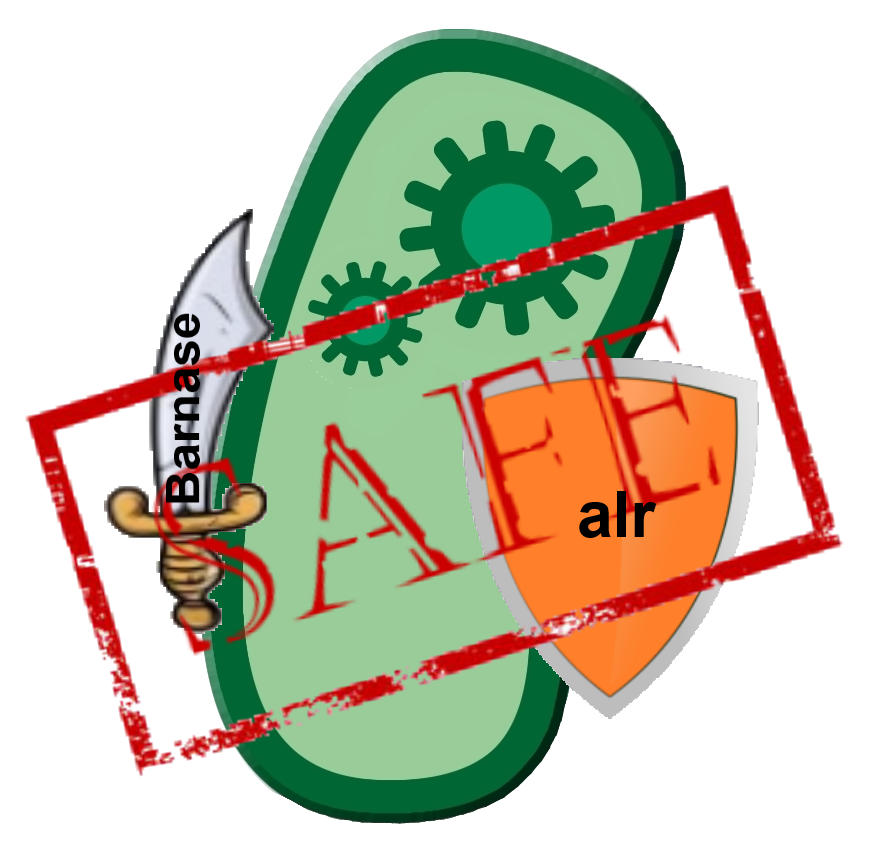Team:Bielefeld-Germany/Biosafety
From 2013.igem.org
Biosafety
Overview
Biosafety is an essential aspect when taking part in iGEM especially when you work with living organisms which could possibly get out of your application by damage or incorrect handling. It is important to protect the population and the environment by developing and applying systems which comply these aspects. In order to counter this problem there already exist useful systems to prevent the bacteria from escaping or to kill the bacteria when they are outside of the device. To complement this archive we constructed not only one system but also three systems which differ in leakiness and strength. For this approach we combined two common Biosafety-ideas, an auxotrophic and a toxic gene product, in one device. Thereby the constructed Biosafety-System takes the best of this two approaches and is therefore characterized by a double kill-swtich system. This double kill-switch mechanism provides a higher plasmid stability and a higher resistance towards undesirable mutations additionally. In one sentence: Our Biosafety-System is safe!
Application
First of all the device we designed could be applicable everywhere. It is a closed system that contains E. coli which isn't allowed to get out. Production of toxic products is possible with a controlled induction after an adequate growth is achieved. The alanine racemase, which is in the device, is a new opportunity to arrange selection like an antibiotic would do. Therefore, it isn't necessary to supplement antibiotics to the culture media in our device. Because of the fact that our whole MFC system within the safety strain is safe and independent of weather it could be used in waste water treatment, for small applications at home or in the Third World to gain electricity. For detailed information about using the MFC in actual and future application see our Application site.
References
- Autoren (Jahr) Titel [Link|Paper Ausgabe: Seiten].
 "
"





